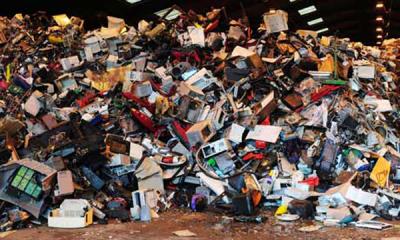The chosen theme to mark the 2015 World Environment Day (WED) is quite evocative of an unnoticed link between lifestyle and the environment. A link which is bound to strengthen further to an increasingly consumerism-driven society. As a matter of fact, we are all consumers of innumerate goods and services that we routinely depend upon for our existence, no matter our background, age, socio-economic status, etc. However as the world’s population is constantly rising, so would the demands on the Earth’s natural resources for providing the basic needs of life as well as any elements of comfort. This represents a complex challenge as many of these natural resources are heavily exploited raw materials while being non-renewable: for instance coal, natural gas and minerals.
So, should human beings stop consuming? Of course, no. But a paradigm shift in the materialistic way of consumption can be induced so as to refrain from products that are not of an absolute necessity. In a similar context, using an older product, which is still in working condition instead of always opting for a newly manufactured one, symbolises prevention of wastage. If this may sound awkward, the basic idea behind is that the production of new items generally requires more natural resources as compared to repairs or refurbishments of existing ones. Thus, the society can gradually adhere to a ‘services-based’ consumption rather than a ‘products-based’ consumption. In other words, commercial products like cars, mobile phones, washing machines, etc. may not necessarily be owned, but loaned as and when required from service providers. However, other related factors like safety, quality or reliability of the products may easily dampen such a concept in society.
Bearing in mind that old consumer items may not always be in re-usable conditions and would require disposal, the recycling industry offers an efficient means of harnessing them or their parts into ‘new’ products and materials. Once again, a change in mindset within the modern society may be needed since the recycling of various products has already been successfully exploited. Alike for new products, the private sector can use advertising and marketing to promote products based on recycled materials in society. On their part, the public sector, NGOs, the media or other groups play a key role in educating people so as to highlight the environmental benefits of recycling and instill in them a culture of good practices right at grassroots level, for instance on the proper segregation of household wastes. But, without a well-framed multi-stakeholder approach, it may defeat the purpose of keeping different bins intended for different types of wastes as an example, old metal cans may end up into bins for vegetable wastes or vice versa.
Packaging of commercial products is another aspect that should be relooked in society as it often plays a key role on influencing consumer choices. Manufacturing industries and traders are thus expected to give due consideration to the environment especially for products which may comprise of superfluous packaging. Consider a very simple example to illustrate this: A thin plastic film covering a colourful paper box enclosing chocolates which are wrapped in Aluminium foil. No doubt that the named materials do play a role in ensuring the proper shape and quality of what matters the most (the chocolates), however they would eventually reach a waste bin or may simply linger in nature thereby representing an environmental burden. Similarly, people are expected to use shopping bags made of more sustainable materials instead of burdensome ones. And, this may be an opportunity for other stakeholders e.g. R&D organisations and consumer associations to assist in addressing this specific challenge.
Now some fuzzy maths: In the year 1974, the word population reached 4 billion, while the 7 billion mark was reached in 2012, this represents a 75 % increase in the number of people on Earth in almost 4 decades. It has also been noted that after about a 12-year period, an extra billion people adds up to the figure and by this trend the world population is estimated to reach the 10 billion mark somewhere in the 2060 – 2070 decade. One may ponder if there would be sufficient and equitable resources to feed the entire planet, to cater for health care, housing, transportation, and so on, by that time. Or would Science introduce new materials and alternative environmentally friendly technologies? Unfortunately, such questions are coupled with so many uncertainties for obtaining their answers, while it is often asserted that Sustainable Development is an ideology geared towards the future generations…
‘Seven Billion Dreams. One Planet. Consume With Care’ – the theme for the 2015 WED as chosen by the United Nations Environment Programme is indeed a highly meaningful reflection on our very existence as living beings to prosper and evolve on Earth but also reminds us of our shared responsibility towards it. Unequivocally, our lifestyles should embrace the three-pronged environmental concept ‘Reduce, Re-use and Recycle (3Rs)’ for addressing the issue of consumption. As once said by the Mahatma Gandhi “The world has enough for everybody’s need but not enough for everybody’s greed” and in this way the best ally for consumption could well be moderation.
With moderation, please
- Publicité -
EN CONTINU ↻


